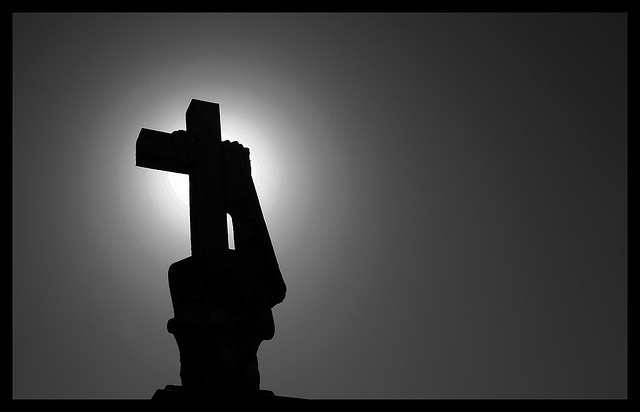This is one of those texts.
Call it difficult, challenging, or even a text of terror, there is simply no way you can read aloud Mark 10:2-16, or Genesis 2:18-24 for that matter, without preaching on either. And if you read the Gospel lesson and only preach about children, well, you can’t. Divorce knows too many to pass on this text as just another teaching from Jesus.
Yet, the difficulties surrounding divorce in the ancient world and those today are less than compatible. Ask any person who’s been divorced, ask any child of divorce, and you will hear a story that eschews any generalizations when it comes to divorce decrees. The specifics of each situation must always be recognized, regardless of your agreement or experience. Any blanket statement about the perils of divorce without sensitivity to the complexities will fall on resistant ears that will then, and once again, discern that the Bible has little to say about real life now.
At the same time, this text, the following story about children, and the lesson from Genesis point to some subterranean themes when it comes to relationships. The commentary on the website noted the theme of vulnerability. This is certainly something to address, in that divorce exposes vulnerability — on many levels. Case in point, children have no life or livelihood, no means of survival, without relying on a parent or adult. Yet this week, this time around, I am struck by the theme of dependence. Another aspect of divorce is how it brings to the surface our dependence — or lack there of, or radical need of — when it comes to relationships. This is not to dodge the issue of divorce, but to suggest that the relational issues raised by divorce are a way to preach about it –- and in a meaningful way.
The loss of dependence is one of the heartaches of divorce. The one on whom you thought you could depend you no longer can, whether that be on a spouse or that of children on parents, even on the in-law and friend relationships. A critical aspect of how relational life has been structured has fallen apart so that one measure of grief is to think about on whom dependence can be found again.
Putting the Mark texts (divorce and children) and the Genesis text side by side reveals how essential dependence really is. One reason for divorce, for the separation of relationships, is when that dependence has crumbled and is beyond repair. The fundamental need for dependence is met with resistance by the other so that the lack of dependence turns into a breakdown of trust. If the one on whom you could depend now rejects that essential human instinct, the erosion of trust is just around the corner.
While we would, and our culture does, like to assert that independence is the highest form of individuality, autonomy, and a pinnacled mark of leadership, God tells us it’s the opposite. We think that we are capable of a kind of independence that presupposes a selective dependence. We pretend that we don’t really “need” anyone, we can do this on our own. Dear preachers isn’t this true? Come one, be honest. Tell the truth to yourself — and start there. We convince ourselves of the need for dependency, but only if absolutely necessary, and if we can pick and choose the situations in which it really matters.
At stake in the Mark text is not only dependence but the mutuality of dependence. What Jesus points out is that dependence is a two way street, as does Genesis. We are dependent on the other, but in part, that dependence depends on the knowledge that the other needs us too. When the reciprocity of dependence is askew, therein enters all kinds of dysfunction, of which we are fully aware.
This is an opportunity to preach the absolute necessity of dependence, which the Genesis text suggests is a fundamental characteristic of God. Relationships need it, long for it when it is absent, and break up when it seems beyond the imagination of return. Divorce doesn’t always occur because of major issues. The fracturing of relationships happens when dependence is taken for granted, when dependence cannot be counted on, when dependence is abandoned for the sake of a misconceived autonomy or an idealized picture of self.
God exists in and on dependence. Ministry demands and is determined by dependence. But it is so easy to assure ourselves that dependence is weakness; that dependence assumes an absence of assuredness. It is also tempting to misuse dependence, to ask for it when it’s not returned, to think you are owed it when you yourself have let it go, to manipulate it for your own gain. That’s what Jesus is, in part, naming — the ways in which the expectation of dependence is supposed, taken for granted, or not appreciated — and that the Kingdom of God expects it to be different.
Therein lies the promise. The in-breaking of the Kingdom of God signaled by the presence of Jesus in our midst insists on something different, something more. God imagines for us that our relationships have dependence at their core. Why? So that you might know that dependence on another is but only a foretaste of the promise of the dependence you can entrust to God. God asks you to be dependent, needs you to be dependent, on God. Why? So that you can be you and so that God can be God.
Karoline

